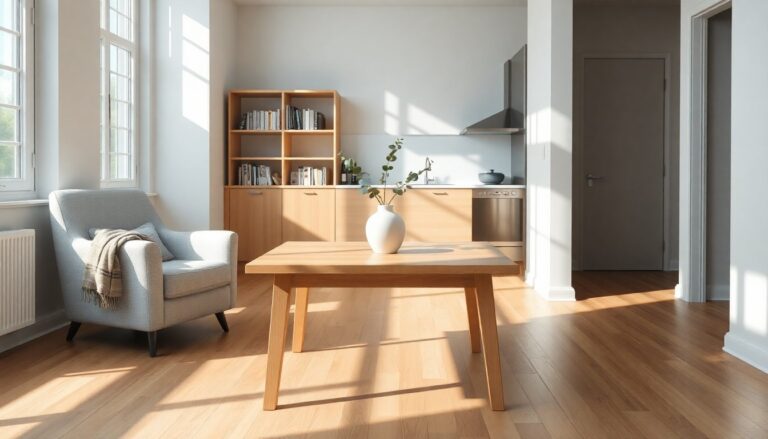Argomenti trattati
Understanding minimalism: beyond just decluttering
Minimalism is frequently misconstrued as a mere trend centered on reducing possessions. In reality, it represents a comprehensive philosophy that encourages individuals to concentrate on what genuinely matters. This lifestyle choice fosters a deeper connection with personal values and can significantly enhance overall well-being. Inspired by cultural movements such as the Japanese concept of wabi-sabi, which finds beauty in imperfection, minimalism invites us to appreciate our surroundings in a more profound way.
The psychological benefits of living with less
Research demonstrates that clutter can contribute to heightened stress and anxiety levels. By adopting a minimalist approach, individuals often report experiencing a sense of calm and clarity. A study published in the journal Environment and Behavior indicated that participants in decluttered environments displayed lower levels of cortisol, the stress hormone. Moreover, minimalism promotes a greater emphasis on experiences rather than material belongings, aligning with the growing trend of experiential living.
Practical steps to start your minimalist journey
If you find the idea of minimalism appealing, consider these practical steps to embark on your journey:
- Assess your belongings:Begin by evaluating what you truly need and what brings you joy.
- Set decluttering goals:Focus on one area of your home at a time to prevent feeling overwhelmed.
- Adopt a ‘one in, one out’ rule:For each new item you introduce into your home, contemplate removing one.
- Embrace digital minimalism:Organize your digital space by decluttering files and unsubscribing from unnecessary emails.
Minimalism in popular culture: a growing movement
Minimalism has gained popularity in contemporary culture, highlighted by documentaries such as Minimalism: A Documentary About the Important Things and the emergence of minimalist influencers on social media. This movement reflects a shift in consumer behavior and resonates with a deeper desire for mindfulness and intentional living. The increasing popularity of minimalist design in architecture and fashion further exemplifies society’s embrace of simplicity.
The future of minimalism: a sustainable lifestyle choice
As we look to the future, minimalism is expected to continue evolving, especially as sustainability assumes greater importance in consumer culture. By prioritizing quality over quantity and adopting a sustainable lifestyle, minimalism aligns with the values of the next generation. As more individuals strive to reduce their ecological footprint, embracing a minimalist mindset can pave the way for a more meaningful and eco-conscious way of living.

